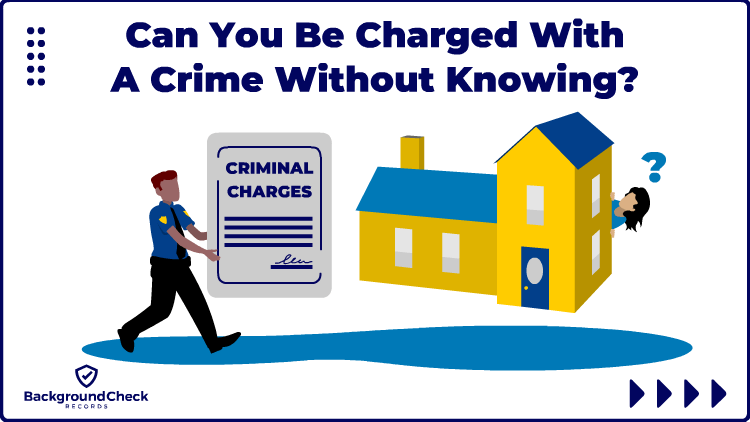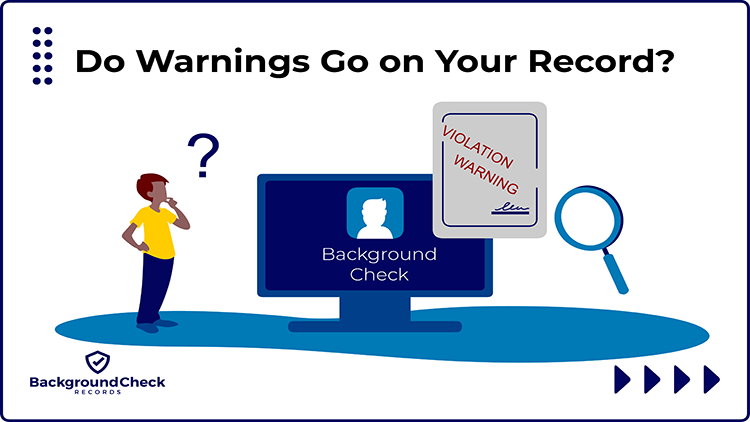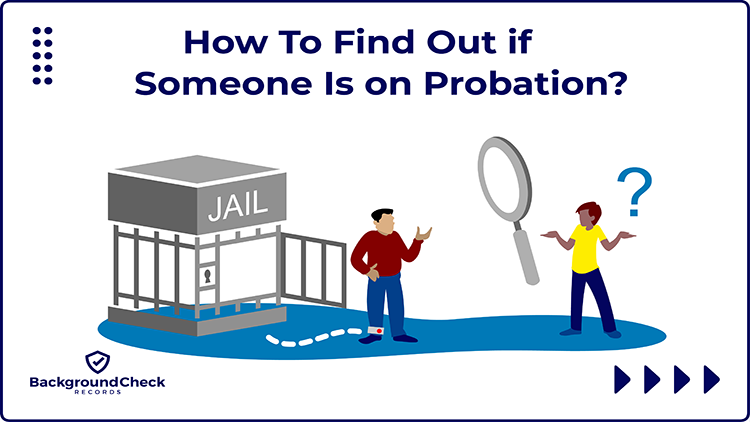Can You Be Charged With a Crime Without Knowing? (Sadly Yes)
It is possible to be charged with a crime without being aware of it. Regrettably, this situation occurs regularly, affecting unsuspecting individuals every day.
From random police interactions, to ongoing investigations regarding the 500,000 violent crimes and 3.4 million property crimes reported in the United States, many people are charged with a crime and don’t know until they are taken into custody or given the summons to appear in court.1
No matter the case, charges can have a grave impact on a person’s future, so see if you were charged with a crime by filling out the form because it’s important to know if you were charged as quickly as possible in order to mitigate any damage.
Is it Possible to Have a Criminal Record Without Knowing? Can You Have a Criminal Record Without Knowing?
In short, it is possible to have a criminal record without knowing it, and learning how this can happen can help lessen the impact it can have on a person’s employment, housing, licensure, or other rights and privileges such as motor vehicle operation.
Also, criminal records are not limited to just convictions, so charges and arrests can and do show up on background checks. There are times when a person will be aware they are under investigation, but this is not always the case. Depending on how the case is presented to the district attorney’s office can determine when a person finds out they have been charged.
It is indeed possible to be charged with a crime without prior knowledge, which can significantly impact your life. Understanding the circumstances under which this occurs can help individuals prepare for the potential ramifications of such charges.
How Can You Be Charged With a Crime and Not Know it?
If you’ve ever asked yourself “Have I been charged with a crime,” be aware because it is possible to be charged with a crime without knowing it. One reason for this is due to the way charges are pressed varies from state to state, so the ways someone can unknowingly be charged with a crime also varies.
Some states require law enforcement investigations, others allow private citizens to start the complaint process without law enforcement involvement. Law enforcement and private citizens are under no legal obligation to let someone know they will be seeking formal criminal charges; therefore, this is how someone can be charged without knowing it.
For example, a person in North Carolina can go to the magistrate and file misdemeanor domestic criminal trespass charges against an ex for showing up at their home and slamming a door.2
When law enforcement has an ongoing investigation, they may not alert the alleged offender until a charge has been filed and a warrant issued for the person’s arrest in order to build a strong case to take to the district attorney. Additionally, law enforcement may not alert the alleged offender for fear the person will elude arrest if they are aware they are under investigation.
It is possible to be charged with a crime without being informed of it initially. Law enforcement may not notify individuals of charges until they serve a criminal summons (an order to appear in court) or arrest them based on an arrest warrant.
Understanding the Circumstances of Unaware Criminal Charges
When a person can be charged with a crime varies based on the statute of limitations – which refers to the fact that each state has a statute of limitations restricting the amount of time the district attorney’s office has to file charges or proceed with a hearing once a crime has been committed or discovered.
These statutes vary from state to state, and certain crimes carry no statute of limitations.
The table below shows when and how long after a person can be charged with a crime by state based on the level of crime and state statutes of limitation.
State by State Statute of Limitations
| State |
Statute of Limitations |
| Alabama |
1 year for misdemeanors
5 years to no limit for felonies |
| Alaska |
Up to five years for misdemeanors and 10 years to no limit for felonies |
| Arizona |
½ to 1 year for misdemeanors and 7 years to no limit for felonies |
| Arkansas |
1 year for misdemeanors and 3 years to no limit for felonies |
| California |
1 year for misdemeanors and 3 years to no limit for felonies |
| Colorado |
½ to 8 ½ years for misdemeanors and 3 years to no limit for felonies |
| Connecticut |
1 year for misdemeanors and 5 years to no limit for felonies |
| Delaware |
2 to 3 years for misdemeanors and 5 years to no limit for felonies |
| Florida |
1 to 2 years for misdemeanors and 4 years to no limit for felonies |
| Georgia |
2 years for misdemeanors and 4 to 7 years for felonies |
| Hawaii |
2 years for misdemeanors and 6 years to no limit for felonies |
| Idaho |
1 year for misdemeanors and 5 years to no limit for felonies |
| Illinois |
1 ½ years for misdemeanors and 3 years to no limit for felonies |
| Indiana |
2 years for misdemeanors and 5 years to no limit for felonies |
| Iowa |
1 to 3 years for misdemeanors and 1 year to no limit for felonies |
| Kansas |
5 years for misdemeanors and 5 years to no limit for felonies |
| Kentucky |
1 year for misdemeanors and no limit for felonies |
| Louisiana |
½ to 2 years for misdemeanors and 4 years to no limit for felonies |
| Maine |
3 years for misdemeanors and 6 years to no limit for felonies |
| Maryland |
2 years for misdemeanors and 3 years to no limit for felonies |
| Massachusetts |
6 years for misdemeanors and 6 years to no limit for felonies |
| Michigan |
6 years for misdemeanors and 10 years to no limit for felonies |
| Minnesota |
3 years for misdemeanors and 5 years to no limit for felonies |
| Mississippi |
3 years for misdemeanors and 1 year to no limit for felonies |
| Missouri |
½ to 1 year for misdemeanors and 3 years to no limit for felonies |
| Montana |
1 year for misdemeanors and 5 years to no limit for felonies |
| Nebraska |
1 ½ years for misdemeanors and 3 years to no limit for felonies |
| Nevada |
1 year for misdemeanors and 4 years to no limit for felonies |
| New Hampshire |
¼ to 2 years for misdemeanors and 1 year to no limit for felonies |
| New Jersey |
1 year for misdemeanors and 5 years to no limit for felonies |
| New Mexico |
1 to 2 years for misdemeanors and 3 years to no limit for felonies |
| New York |
1 year to no limit based on the degree of each criminal code in New York |
| North Carolina |
2 years for misdemeanors and no limit for felonies |
| North Dakota |
2 years for misdemeanors and 3 years to no limit for felonies |
| Ohio |
½ to 2 years for misdemeanors and 1 year to no limit for felonies |
| Oklahoma |
3 years for misdemeanors and 3 years to no limit for felonies |
| Oregon |
2 years for misdemeanors and 3 years to no limit for felonies |
| Pennsylvania |
2 years for misdemeanors and 5 years to no limit for felonies |
| Rhode Island |
3 years for misdemeanors and 10 years to no limit for felonies |
| South Carolina |
No limit for misdemeanors or felonies |
| South Dakota |
7 years for misdemeanors and 7 years to no limit for felonies |
| Tennessee |
1 year for misdemeanors and 2 years to no limit for felonies |
| Texas |
2 years for misdemeanors and 3 years to no limit for felonies |
| Utah |
1 to 2 years for misdemeanors and 4 years to no limit for felonies |
| Vermont |
3 years for misdemeanors and 3 years to no limit for felonies |
| Virginia |
2 years for misdemeanors and no limit for felonies |
| Washington |
1 year for misdemeanors and 3 years to no limit for felonies |
| West Virginia |
No limit for misdemeanors and felonies. Perjury is the only exception with a 3-years statute of limitations |
| Wisconsin |
3 years for misdemeanors and 6 years to no limit for felonies |
| Wyoming |
No limit for misdemeanors or felonies |
Crimes that fall under federal jurisdiction also have specific statutes of limitation for when they can be brought to trial. These range from one year to no limit based on the seriousness of the crime.3
Until the statute of limitations for the offense in question has been reached, a person can be charged with a criminal offense without them knowing the charges regardless of whether or not the charges were misdemeanors or felonies.
If It Was a Misdemeanor or Felony, Can You Be Charged Without Knowing?
When it comes to misdemeanors and/or felonies, it is possible for someone to be charged with a criminal offense without being aware of it. This situation unfortunately occurs, where individuals may not realize they are facing charges until formal legal proceedings begin.
Law enforcement is under no obligation to notify someone if the person is under investigation or when there is a warrant for someone’s arrest or a criminal summons to court until the police are ready (or able) to serve them with notice of hearing.
In states where individuals can press misdemeanor charges directly, they do not have to inform the accused they are seeking court relief. Law enforcement is also not obligated to inform someone they are seeking misdemeanor charges until they are ready to serve notice to appear in court.
Grand jury proceedings in felony cases can proceed without notification to the accused as well. Grand jury proceedings are when the grand jury members review all the evidence in a felony case and make a decision on whether or not there is enough evidence for the case to go to court. The grand jury does not look for guilt beyond a reasonable doubt, they are only looking for probable cause (or enough evidence a crime was committed and the person accused is likely the one who did it).
When a grand jury hears a case and determines it can go to court without the alleged offender’s knowledge it’s called a secret or silent indictment. This process for formally filing charges without the defendant’s knowledge is often used when the accused is a flight risk or there is a risk of harm to witnesses or the victims.4
Indictments for felonies or misdemeanor charges can occur with and without an arrest. An arrest is simply a step that can be taken following the formal filing of charges.
Can You Have a Criminal Record Without Being Arrested? (Police Reports, Investigations Citations & Summons)
It is possible to have a criminal record without being arrested, but not all parts of the process are made public since state laws determine what is considered a public record in that particular jurisdiction.
Also, a criminal record can be either public, meaning anyone can request access to the record, or a private criminal record which is only available to certain people such as law enforcement, court personnel, or those designated by state law or a judge’s order.
Or in other words, yes, you can have a criminal record without being arrested and sometimes this record is public-facing, and other times it’s only accessible by authorized personnel.
However, when it comes to items such as police reports, investigations, citations, and summons, they each may or may not be considered public records.
Police Reports
Police reports contribute to criminal records, though they may not always be public. This implies that law enforcement or court officials can review police reports, yet these reports typically do not appear on background checks, which address the query of whether police reports show up on background checks. However, the absence of police reports on these checks does not necessarily indicate an absence of a criminal record.
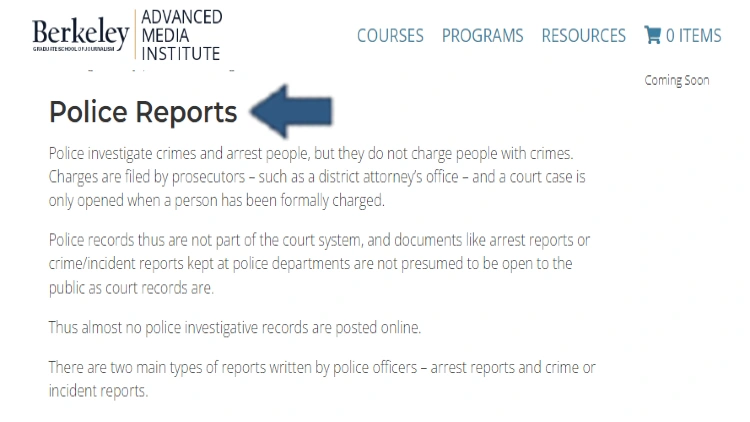
There are some circumstances where police reports can be released; however, the release is strictly limited. For example, individuals involved in an automobile accident may obtain a copy of the police report for insurance purposes.
Victims of crimes can also request copies of police reports; however, the accused is usually not given a copy directly to protect the victim’s information. Copies of police reports can be provided to the defense attorney as part of the criminal record.
Investigations
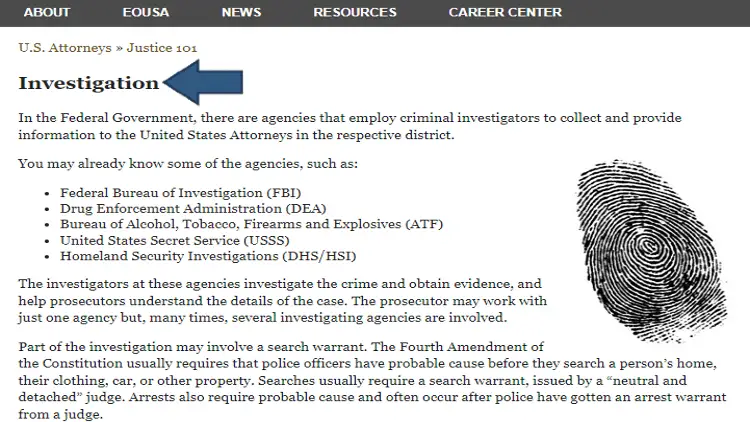
Investigations are another part of the criminal record that is not considered public record. These are limited to law enforcement and court personnel on a need-to-know basis. Investigative reports will not show up on a public background check.
Citations
Citations are usually considered traffic tickets, parking tickets, and municipal violation charges. These are part of the criminal record that is considered public record. A review of court dockets can reveal a citation against a person.
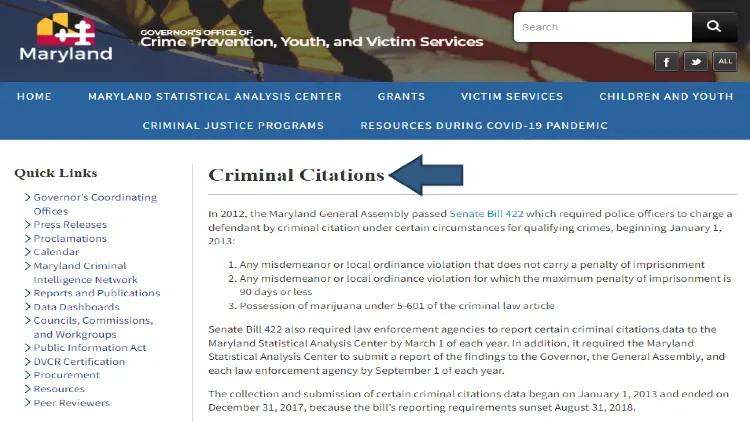
Citations are usually presented to the defendant at the time of the incident; therefore, it is rare for a person will have a citation without their knowledge.
Summons
A summons is an order to appear in court on a criminal charge and since they’re part of most court records, they are also considered public records and criminal records. Summons are what law enforcement serves to the accused telling them the date and time of trial and what courthouse or courtroom they are to appear in.
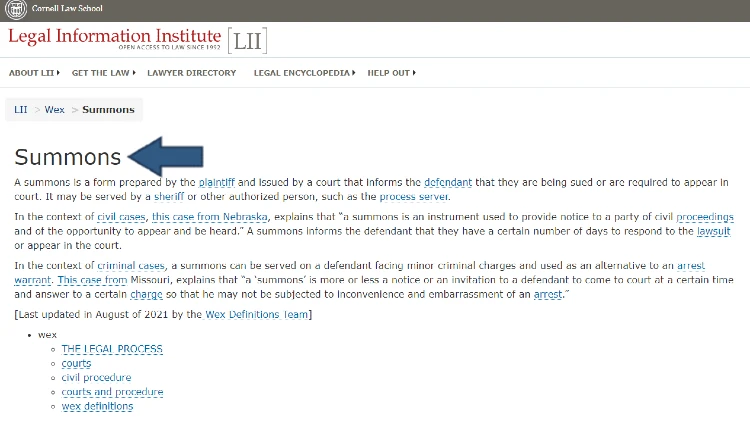
Summons are used in lieu of arrests, and they can be issued without a person knowing there is one until it is served.
Warrants
A warrant can also be issued against a person without their knowledge so with investigations, law enforcement does not have to reveal a person has a warrant for their arrest until they are ready or able to serve the warrant and take the person into custody.
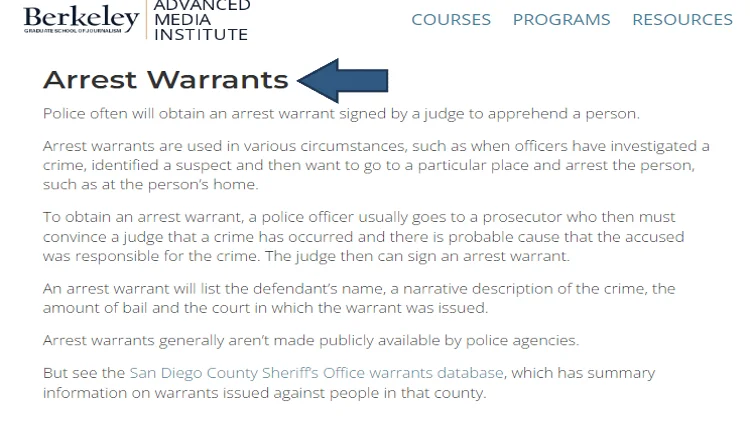
The amount of time between when the charges are officially filed and the person is made aware of the pending case against them can vary from state to state and from case to case.
How Long Can You Be Charged Without Knowing?
There are a number of factors that determine how long a person has a pending charge without being aware of it. There are also state laws that can impact how long law enforcement has to serve someone with a warrant or summons before the court is required to dismiss the action.
The biggest factor in determining how long a person can have a pending charge without knowing it is the law enforcement agency. Larger agencies have officers dedicated to strictly serving warrants and summons, so there may not be a huge lapse in time between the issuance of the paperwork and service on the accused.
Smaller departments may not have the manpower to serve summons and arrests quickly, so this can greatly delay the amount of time between when the paperwork is issued and the person learns about the charges.
Another factor that can delay a person’s knowledge of a charge against them is how quickly law enforcement can find them after the paperwork is issued. When addresses are incomplete or incorrect it can prevent police from making an arrest or serving a summons.
Once the charges have been filed, they will be placed on a court docket (list of cases for hearing on a given day), at which point they will either be tried and the court will determine if the person is or is not guilty, or they will be dismissed or dropped by the district attorney.
If You Have Been Charged but Not Convicted Is it On Your Record? (Charged With a Crime but Not Convicted)
Charges are the first step in the trial process and are considered part of the court record, but not all charges result in a conviction. If a person has been charged with a crime, but the results are a non-conviction, it may or may not stay on the person’s record depending on the laws in that state.
Some states offer automatic relief for non-convictions regarding a person’s public criminal record. These states have passed laws requiring non-convictions to be erased (expunged) or sealed from public view.
A list of states with automatic relief appears below.
Other states allow an individual to file a petition (or request) with the court to have the record sealed or expunged removing non-convictions from a person’s record.
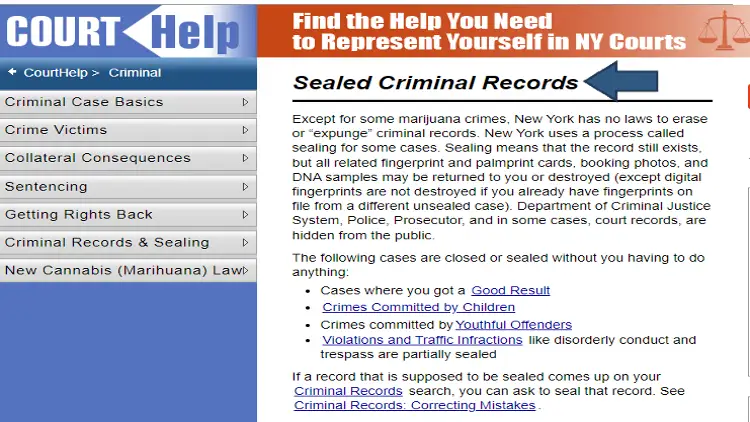
A criminal record contains information on charges, convictions, sentencing, and other factors, but the victim’s demographics and the person who pressed the charges are not part of the public record.
Can You Have Criminal Record Without Knowing Who Pressed Charges?
As a matter of fact, it is possible to have a criminal record without knowing who filed the charges. This can sometimes be confusing because the 6th Amended to the United States Constitution says a person has the right to confront witnesses against them but happens nonetheless.5
While a person has the right to confront witnesses, this does not mean the victim or the witness is necessarily the person who pressed charges. Some states do allow victims or witnesses to file misdemeanor charges directly with the court. This means when the case goes to court, the accused finds out who filed the charges during the hearing.
Other states require a police investigation to be completed and the report submitted to the district attorney’s office for review and referral to court for the hearing. Therefore, the district attorney who actually filed the charge may or may not be the one who tries the case in court.
Also, as stated earlier, a criminal record may be public or restricted to court and law enforcement personnel, so it is possible to have a criminal record without knowing who filed the charges or if charges have even been filed.
In any case, there are ways to find out if someone has been charged with a crime or has a criminal record they are unaware of.
Find Out if You Have a Crime Without Knowing or Have a Criminal Record
It is possible to be charged with a crime without being aware of it. Discovering if someone has been charged can occur before they are served with a summons or an arrest warrant. There are multiple ways to find out if criminal charges have been filed including free methods and paid search services.
Run a Background Check
Background checks can be conducted online for personal or professional reasons. Personal background checks can be completed by using search sites that look at records nationwide.
These sites charge a fee for their service, and the fees vary depending on the company and can show current pending charges in addition to convictions.
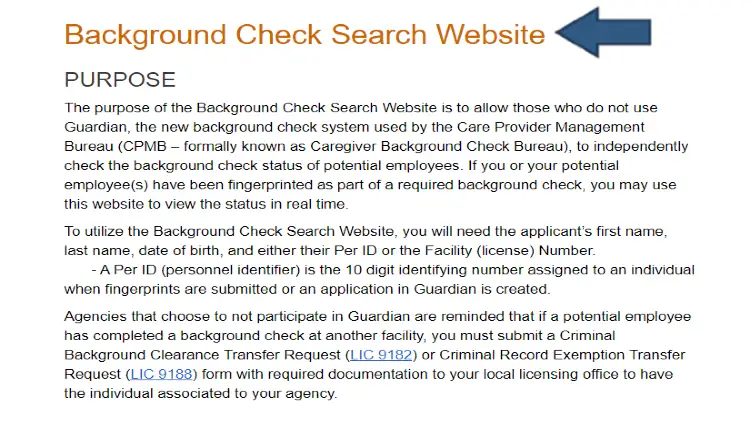
Pending charges are frequently filed without the alleged offender being informed of the legal proceedings against them. This situation raises the question of whether pending charges show up on a background check. Indeed, pending charges can appear on records checks or background screenings, notifying individuals of their legal situation, even if they have not yet received a notice of hearing.
Professional background checks for employers or landlords can reveal if a person has pending charges even if they have not been served. Checks that require fingerprinting are more likely to reveal if a person has been charged with a crime that has not yet gone to trial.
The prospective employer may be the first one to reveal a person has been charged with a crime without them knowing it.
Check With Courts and Law Enforcement
Anyone can call the clerk of court’s office or the local law enforcement agency in their area to see if they have outstanding warrants or summons for court.
Individuals can call the clerk of the court’s office to see if there are any pending charges and if they are on a docket to be tried. The clerk’s office may or may not reveal if there are pending charges depending on the state and the rules of court in that jurisdiction.
The person can also call the police department or sheriff’s office to see if there are any outstanding warrants or summons for them. In addition, people can see if they have been charged with a crime by checking online in areas where local law enforcement publishes outstanding warrants – places such as their website or an online portal.
Hiring a Bail Bondsman or Attorney
If you’re concerned about being charged with a crime without your knowledge and its impact on your criminal record, it’s unfortunate but possible. Engaging a bail bondsman or attorney could assist in discovering any pending charges against you.
Both bail bondsmen and attorneys have access to court records that may not be public; therefore, they can find out if someone has been charged with a crime. An attorney can also answer any questions you have, help with surrendering to law enforcement and work on the person’s defense.
These are the most effective methods of learning if someone has been charged with a crime without knowing it and oftentimes pending criminal charges can negatively impact a person’s life.
So, if you’re wondering whether you could face charges without being aware of them, unfortunately, the answer is yes. You can verify your record using the form above and seek legal assistance if necessary.
Frequently Asked Questions
What’s the Process to Be Charged With a Crime?
Below is a step-by-step guide to pressing charges.
- A crime is committed or discovered.
- Law enforcement is called to investigate. In some states, the victim can go directly to the court or magistrate and submit a formal complaint (press charges) for misdemeanor offenses.
- Law enforcement presents the report to the district attorney.
- The district attorney presses charges directly (most common in misdemeanor offenses) or presents the case to the grand jury (the process for felony cases).
- The grand jury reviews the evidence in felony cases and either issue a true bill (formal charges) or no true bill (dismissed charges).
Can You Get a Criminal Record Without Going to Court?
Because criminal records can include pending charges, it is possible to have a criminal history without going to court. In states where there is automatic relief for non-convictions these can automatically drop off the record, and in other states the individual would have to petition the court to have them removed.
Can I Be Charged Without Sufficient Evidence?
The short answer is, yes in some states a person can be charged with a crime without sufficient evidence. States that allow private citizens to directly file criminal complaints are often only based on a sworn statement provided by the victim or witnesses
Can You Be Charged With a Crime 7-10 Years Later?
Whether or not a person can be charged with a crime 7-10 years later is based on the nature of the crime and state statute of limitations. Most states limit filing misdemeanors to anywhere from ½ year to 5 years. Felonies statutes of limitations by state can be from 1 year to no limit. For example, crimes such as murder or sex offenses have no statute of limitations meaning they can be charged any time
1 CDE. (n.d.). Crime Data Explorer. Retrieved August 20, 2022, from <https://crime-data-explorer.app.cloud.gov/pages/explorer/crime/crime-trend>
2 Domestic Criminal Trespass. (n.d.). G.S. 14-134.3 Page 1 § 14-134.3. Domestic criminal trespass. (a) Any person who enters after being forbidden to do so or remai. Retrieved August 23, 2022, from <https://www.ncleg.gov/EnactedLegislation/Statutes/PDF/BySection/Chapter_14/GS_14-134.3.pdf>
3 A Brief Description of the Federal Criminal Justice Process | Federal Bureau of Investigation. (n.d.). FBI. Retrieved August 23, 2022, from <https://www.fbi.gov/resources/victim-services/a-brief-description-of-the-federal-criminal-justice-process>
4 What is a Secret Indictment? (with pictures). (2022, July 20). My Law Questions. Retrieved August 20, 2022, from <https://www.mylawquestions.com/what-is-a-secret-indictment.htm>
5 Right to confront witness | Wex | US Law | LII / Legal Information Institute. (n.d.). Legal Information Institute. Retrieved August 20, 2022, from <https://www.law.cornell.edu/wex/right_to_confront_witness>

